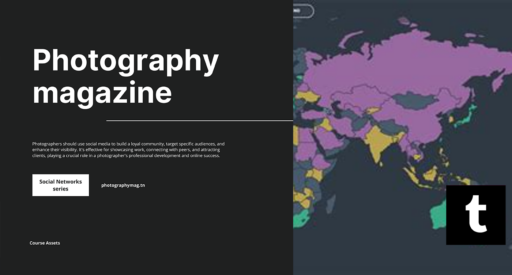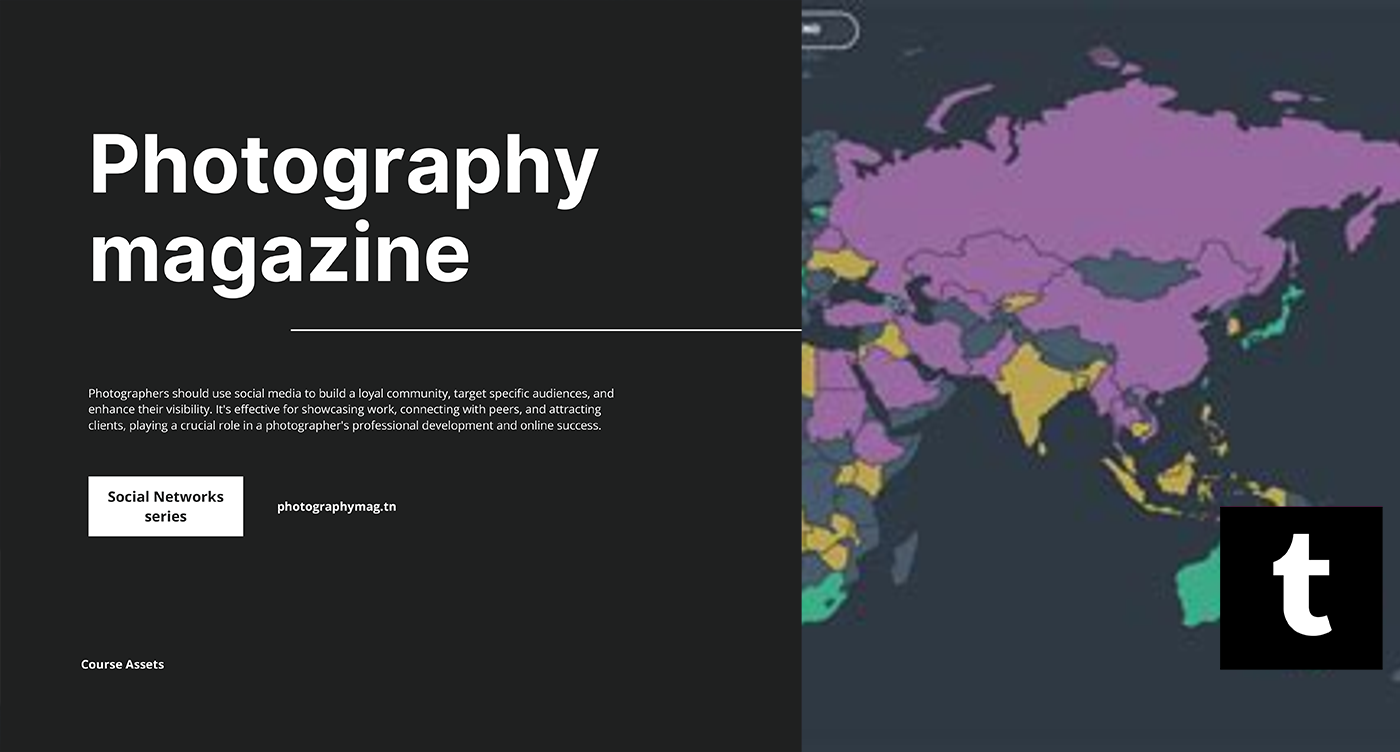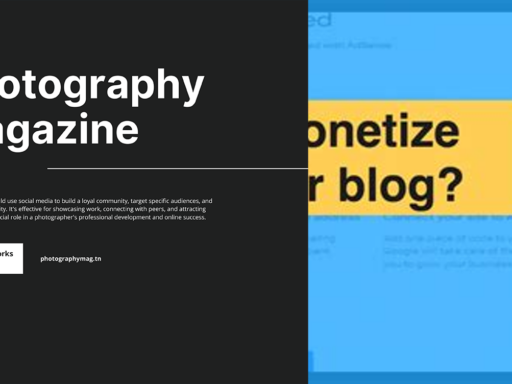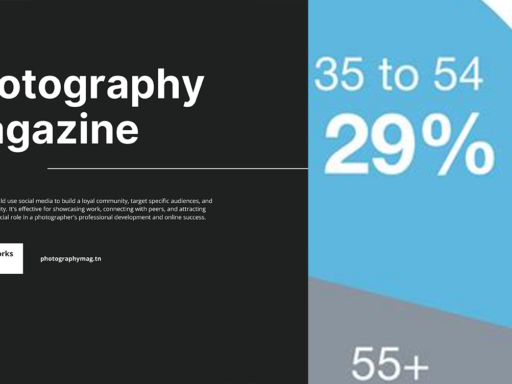Is Tumblr Banned in Any Countries? Let’s Dive Into the Drama!
Oh, Tumblr. The ever-evolving collage of memes, art, and absolutely unfiltered chaos. A treasure trove of all things quirky, Tumblr has captured the hearts of many. But, like a love story riddled with tragedy, it faces some serious censorship. So let’s spill the tea! Is Tumblr banned in any countries? Well, yes, dear reader, and the reasons are as colorful as the site itself. Grab your popcorn as we explore the lands where Tumblr is nothing but a ghostly apparition behind the Great Firewall!
Censorship Awaits: Why is Tumblr Banned?
Before we get to the juicy country specifics, let’s chat about what drives these bans in the first place. You see, each country has its own rules and regulations regarding content. And for some, anything related to pornography, religious extremism, or LGBT content spells serious trouble. Tumblr, like an eccentric artist at an exhibition, has often pushed the boundary—occupying a cozy space where all kinds of controversial content frolic freely. And let’s be honest, some governments find that a little too luscious for their conservative tastes.
Countries that Embrace the Dark Side (of the Internet)
Now, let’s get to the nitty-gritty! Here are a few infamous countries that have decided to erect a digital wall around Tumblr:
- China: Home of the Great Firewall, this country has placed numerous restrictions on social media. Tumblr, with all its riotous variety, is just another brick in that wall. The Chinese government frowns upon things like nudity and political dissent, so they axed access to avoid the chaos that comes naturally with such freedoms.
- Indonesia: This archipelago nation, famous for its stunning beaches and rich culture, has chosen to draw the line at explicit content. So when certain content went viral on Tumblr, the folks in charge hit the brakes, resulting in a ban. They’re all about that family-friendly vibe, and that includes keeping Tumblr at a distance.
- Kazakhstan: Ah yes, the land of vast steppes and now, a slight tale of censorship. Famed for its own leadership quirks, Kazakhstan had deemed Tumblr too enticing and had to impose a ban. Who could have guessed that artistic expression would clash with government preferences? Turns out, everybody!
- Iran: Last, but certainly not least, we have Iran. A place where strict internet regulations reign supreme. Tumblr’s colorful and often explicit content just does not align with their conservative beliefs about morality and modesty. Therefore, the government has said a firm “No thanks!” to Tumblr, opting to preserve their soft-filtered worldview.
More Countries with Strict Online Control
You thought we were done, right? Not even close! Other countries flex their censorship muscles when it comes to the internet as well. In some places, partial bans exist based on certain users or posts. It’s a classic case of setting the vendetta against one platform, while all the others—like a shady group of friends—remain untouched:
- Turkey: Ah, our delightful neighbor! Turkey has a long history of social media blocks. Occasionally, it would either ban Tumblr entirely or selectively ban certain content that’s against the government’s policies. It’s like a game of Whac-A-Mole, but they keep losing!
- Pakistan: Things can get heated here with regards to content deemed blasphemous or immoral. Hence, like a fierce guardian of decency, Pakistan has turned its back on Tumblr, deeming it too racy for their audience.
- Egypt: The Egyptian government isn’t shy about curbing internet freedoms, and Tumblr fell due to its portrayal of sexual and LGBT content. Just another day in the life of tight regulations—who can keep track anymore?
Is There a Common Thread?
As you can see, the reasons some countries decide to block Tumblr seem to revolve around content that challenges traditional beliefs or encourages free expression in ways that clash with government ideologies. Sometimes you just have to wonder if they think covering up the internet is a good thing, like a social media fashion faux pas no one is willing to acknowledge!
Comparing Tumblr with Other Platforms: A Digital Soap Opera
So, is Tumblr the only unfortunate soul in the land of bans? Oh no, my dear Watson! Let’s look at the bigger picture. Other platforms have found themselves in hot water too. Social media sites like Facebook, Twitter, and YouTube have experienced bans and restrictions, mostly for similar reasons—content regulation and political tensions. It’s almost a rite of passage for popular networks!
In fact, platforms that push boundaries often attract the ire of censorship-happy governments. They try to dictate what their citizens see, as if they could just whisk the Internet into a stifling straightjacket. And while these tech titans fuss and fume, the digital era marches on! People adapt, and ingenious methods like VPNs sprout up like wildflowers in spring, allowing folks to hop around these virtual restrictions. You know, the modern-day equivalent of civil disobedience!
The User Experience: Fun and Frustration
So, what about the users from the countries where Tumblr is banned? They’re definitely not sitting there with folded hands and sorrowful faces, I assure you! Instead, they’re cooking up all sorts of clever ways to navigate around the censorship. You know that feeling when you’re craving dessert but it’s out of reach? Those sweet cravings sometimes produce the most innovative bakers!
With VPNs, proxy servers, and by playing with browser settings, folks are just not ready to let go of their beloved platform without a fight. For readers who find themselves in one of these banned regions, options are out there to revive their Tumblr experience. Spoiler alert: just be careful when you step into the rabbit hole, there are risks, but risks make life interesting, right?
The Impact of the Ban: A Two-Edged Sword
The ripple effects of banning platforms like Tumblr can lead to so much more than censorship. It often means stifled creativity, limited freedom of expression, and robust underground movements that quietly resist the restrictions imposed upon them. Just picture it: spirited discussions are happening in whispering tones over coffee like it’s a secret society!
Moreover, when governments block access to platforms, it usually stirs up outrage and sparks conversations around digital rights and freedoms. It’s like poking a bear with a stick; the bear gets cranky, but it also gets attention and that’s when things start to heat up! Activists fight back, creating networks to rally support. Such movements may even lead to change over time. Who would’ve thought that something as silly as a cute cat GIF could cause a full-blown social movement?!
A Glimmer of Hope: Could Change Be On the Horizon?
With changing global attitudes and rising awareness around digital rights, perhaps hope is in the air! Some countries are loosening their grip, granting citizens more freedom than before. Social media sites like Instagram and TikTok are gaining ground, possibly leading to a shift in how people engage with content and interact with one another—one social platform at a time.
Global movements, international pressure, and the persistent ingenuity of the netizens might just rewrite some of the stringent regulations limiting online expression. So as we ponder this ban, let’s not forget that the winds of change are always blowing. Just like those beloved memes, change can catch fire and become the talk of the town, no matter how quirky!
Final Thoughts on Tumblr and Censorship
To sum it all up in a theatrical bow, Tumblr faces bans in several countries due to its tendency to flaunt all sorts of content—diversity, sexuality, and creativity being at the core. From the vibrant streets of China to the mystical lands of Iran, censorship continues to cast its shadow. But like any character in a great drama, the fight for freedom never really ends. Users will continue to push back against digital constraints, often in surprising and innovative ways.
So, is Tumblr banned in any countries? Absolutely! And while it may seem like a sad story of lost connections, it is also a tale of resilience, creativity, and a dash of rebellion. Who knew a platform meant for sharing a little piece of ourselves could become the lightning rod for a global conversation about freedom of expression? So here’s to all the daring Tumblrs out there—keep the rebellion lit, even if you have to jump through hoops and dodge the virtual guards!





